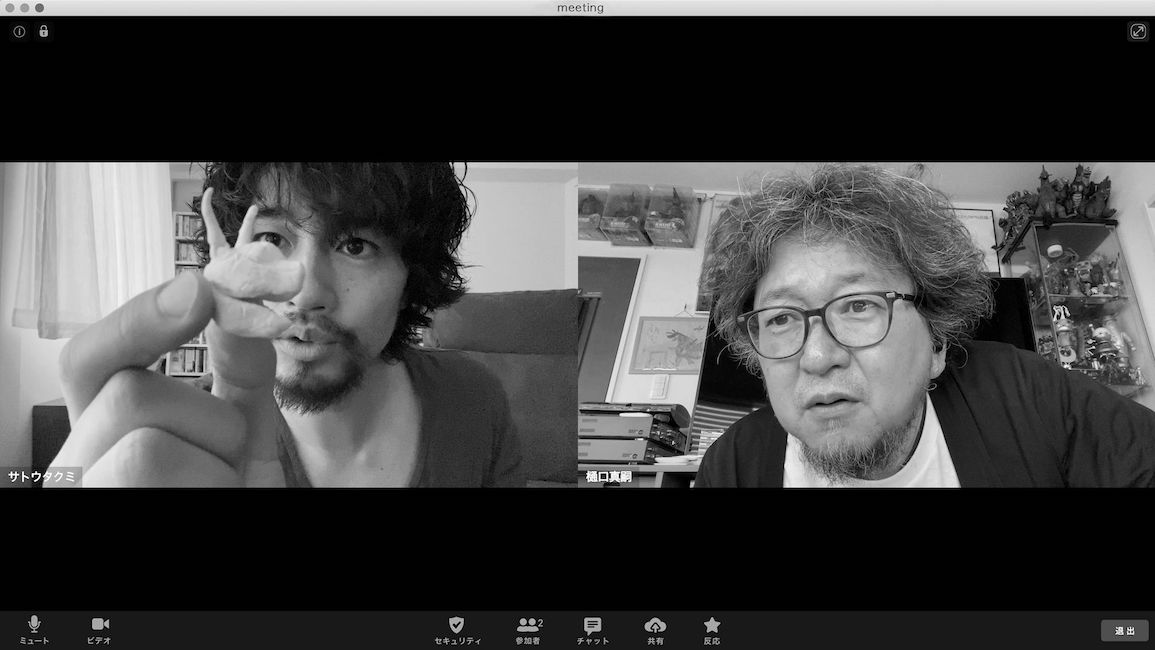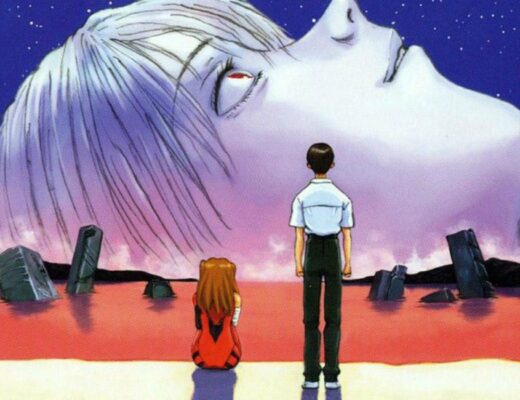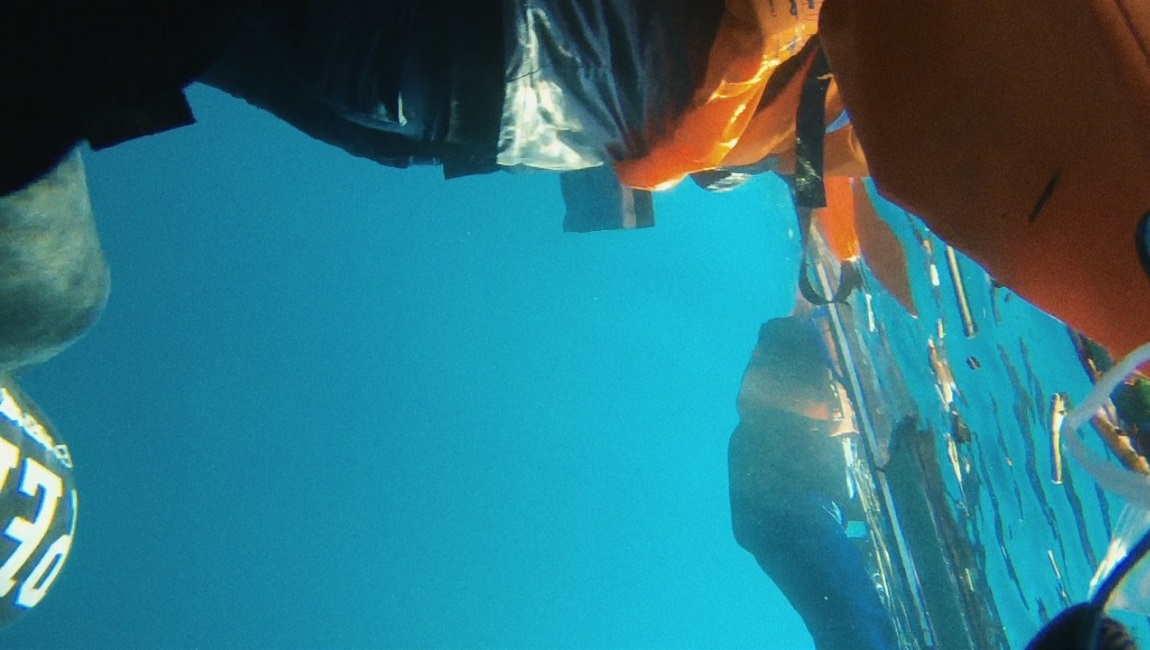OK, so things don’t really vanish anymore: even the most limited film release will (most likely, eventually) find its way onto some streaming service or into some DVD bargain bin assuming that those still exist by the time this sentence finishes. In other words, while the title of In Review Online’s monthly feature devoted to current domestic and international arthouse releases in theaters will hopefully bring attention to a deeply underrated (even by us) Kiyoshi Kurosawa film, it isn’t a perfect title. Nevertheless, it’s always a good idea to catch-up with films before some… other things happen.
The Rental
Dave Franco must have taken a look at the expansive, eccentric filmography of older brother James and thought: if he can do it, so can I. As a director, James Franco has tackled both pretentious, avant-garde provocations and pretentious literary adaptations. In fact, he seems to have made it a personal mission to undo the notion of the unfilmable novel, mostly of the Faulkner variety. For his directorial debut, Dave has aimed a little lower, opting for the straightforward suspense thriller The Rental. While certainly no masterpiece, it has the distinction of being more successful than anything Franco the elder has attempted, an admittedly low bar. It’s a simple set up, as a group of friends rent a lavish Airbnb for a weekend getaway to celebrate a successful round of new investors in their startup company. Charlie (Dan Stevens) and Michelle (Alison Brie) are the married couple; Mina (Sheila Vand) and Josh (Jeremy Allen White) are dating. Josh also happens to be Charlie’s little brother, while Mina is Charlie’s business partner. Franco and co-screenwriter Joe Swanberg map out these connections, as well as the group’s interpersonal dynamics, quickly and efficiently, aided immeasurably by their cast. The game actors all evince an easy-going, laid-back charm, and they demonstrate both casual rapport and believable chemistry.
But this is genre fare and things get complicated quickly, as their host reveals a casual racism towards Mina (who has a ‘middle-eastern’ sounding name; actress Vand is of Iranian descent) and keeps popping up unexpectedly. At this point, it should be noted that it’s best to go into The Rental mostly blind. There’s no shocking twist here, but part of the pleasure of watching a thriller unfold is the gradual unfurling of some larger plot. That larger plot in The Rental acts almost orbitally — everything revolves around it, and it becomes both the film’s primary feature and bug. As enjoyable as it can be to see pieces of plot snap into place, Franco and Swanberg have written what you might call a ‘Chekhov’s Gun’ film. Here, every line of dialogue and ominous musical cue and slightly off-kilter frame forecasts the film is headed, every step of the way. If one character mentions another’s unsavory history with past girlfriends, you better believe it’s going to come up again. When Josh brings along his dog, despite the ‘no pets’ warning on the listing, it’s obviously going to become integral to the plot. Once hidden cameras get involved, it’s simply a matter of waiting for some of the characters to catch up to the others. For all that, it’s still a modestly successful film, agreeably small scale with a few decent jump scares and a welcome mean streak. And it’s worth noting that Franco demonstrates a nice eye for simple compositions and maximizing the negative space in the frame. Where The Rental flags is in its lack of imagination: for better or worse, this is the kind of film that will only ever treat an open door in the background as a frame for a shadowy figure. Daniel Gorman
The Sunlit Night
The world does not deserve Jenny Slate, nor does The Sunlit Night, an inconsequential film adaptation of the 2016 critically-acclaimed novel by Rebecca Dinerstein Knight. It’s quite baffling, then, to learn that Knight is responsible for the screenplay here as well — something clearly has been lost in translation. At only 79 minutes, the movie feels like the victim of an editing massacre. Various storylines come and go that bear no impact on the protagonist’s journey of self-discovery, as if the connections were hastily excised in post and the remaining scraps were scotch-taped back together with five or six montages set to generic indie songs and some voiceover narration that pops in whenever a message or moral needs to be conveyed. The only thing holding the film together — besides the scotch tape — is Slate, who is able to bring both charm and edge to the character of Frances, a struggling artist who travels to a small village in the north islands of Norway to assist a famous artist in painting a local barn. She stays in a dingy RV that is home to a goat; she eats brown cheese; the sun never sets; and she compares everyone she meets to famous paintings that flash on the screen at their mere mention. In case all of that didn’t meet the indie quirk quota for a film of this nature, Zack Galifianakis pops up as a man from Cincinnati who is taking part in local Viking cosplay. Oh, and a Russian kid appears who wants to give his recently deceased father a Viking funeral, resulting in the arrival of Gillian Anderson and one of cinema’s all-time ridiculous accents.
The rambling nature of that synopsis is a decent mirror to the film itself, a collection of scenes that never coalesce into anything greater. One major problem is that we have no idea who Frances truly is before we are thrust into her journey, so it feels impossible to ascertain what it is she wants from all of this dedicated soul-searching other than not being a shitty artist. Director David Wnendt disappointingly brings nothing of the flair he showcased with 2013’s Wetlands, other than a few beautiful shots of the landscape (which are honestly pretty impossible to fuck up so long as you point your camera at the horizon and scream “Action!”). The Sunlit Night culminates with something approximating resignation, as Frances learns that life is a work in progress, where everything is both meaningful and meaningless depending on how you look at it. As an objective observer, let me be clear: this film is meaningless. Steven Warner
Guest of Honour
There’s a certain level of absurdness that is only manifested in an auteur’s twilight years, reaching for that kind of ephemerality that once symboled success, but failing to achieve any semblance of that depth. There hasn’t been a clearer example in recent years than Submergence, by director Wim Wenders — one of the worst films that hit theaters that year. Atom Egoyan has struggled with similar issues of fading relevance and his ability to recreate what once made him a celebrated filmmaker, and his latest film certainly comes the closest to absolute failure out of any that he’s made, even if it is ridiculously fun. The main problem with Guest of Honour is that it too obviously wants to be taken seriously. Jim (David Thewlis) is a health inspector, fastidious in his work, shown carefully examining every bit of dust and assessing all health codes to justify a restaurant’s pass/fail status — all of this while his daughter, Veronica (Laysla De Oliveira), a high school teacher, is in jail for abusing two of her students…or did she? There’s a thematic undercurrent of guilt, how every one of the characters is burdened by it, even periphery characters getting in on the iniquitous fun. As the byzantine plot finishes unfolding itself, near the end — with a drunken speech that hints at violence to come (a suggestion never realized), the planting of rabbit excrement as a sort of extortion, and a funeral that doesn’t ultimately tie any of this together — we’re left with a series of sequences clearly aimed at expressing some unclear theme, some lesson to be learned. But there’s nothing to be found in this mess except for inexplicably self-serious absurdity, and the unmistakable feeling that we’re being asked to consider, say, the death of a rabbit (and the ill-intended scattering of its droppings) as some sort of deep metaphor. Jaime Grijalba Gomez
A Girl Missing
If nothing else, A Girl Missing demonstrates yet again that formal and structural invention can only do so much to rescue a truly dire script. For about half an hour, writer-director Kôji Fukada keeps matters productively ambiguous, deftly braiding two parallel timelines, each centered on Ichiko Shirakawa (Mariko Tsutsui), a middle-aged home-care nurse. In the first, Ichiko lives a life of seeming contentment: she has plans to marry a local doctor, is proficient at her work, and even maintains a close relationship with her ailing patient’s two granddaughters, Saki (Miyu Ogawa) and Motoko (Mikako Ichikawa). In the second, set at some point in the future, she seems downright unhinged, at one point exhibiting bizarre, positively Lanthimosian behavior. How did it come to this? Saki’s abrupt disappearance would seem to provide an answer — but in fact, it’s when she’s found that the film’s shape truly starts to emerge, since it turns out that Saki was abducted by Ichiko’s teenaged nephew, Tatsuo (Ren Sudo). From this point forward, as the media vultures circle the story — for her link to Saki’s family, Ichiko is accused of orchestrating the entire sordid affair — A Girl Missing transforms into a limp, tawdry melodrama. A few more betrayals follow that initial reveal, with Ichiko’s relationship to Motoko becoming ever-more prominent. But what once looked like an incisive examination of emotional co-dependence — one might think briefly of Yorgos Lanthimos’s grief-surrogate parable Alps — reveals itself to be a pointless tale of ruined innocence. Throughout the film’s distended runtime, Fukada proves himself a strong imagemaker, with a talent for discombobulating compositions, canny plays with perspective, and disorienting edits. But in writing his script, he might have done well to take a page from the media folk that he so single-mindedly vilifies: When the story isn’t good enough, rewrite the narrative. Lawrence Garcia
Archive
The new futuristic thriller Archive is aptly titled, as it feels like a pastiche of every major sci-fi film of the past four decades. While writer-director Gavin Rothery — making his feature debut here — would undoubtedly love to hear his work uttered in the same breath as Blade Runner or Ex Machina, the one film it ultimately most resembles is Replicas, the dumb-as-a-doorknob Keanu Reeves-starrer from 2019 that is most memorable for being so unmemorable. But while that film proved to be a diverting bit of enjoyable trash, I’ve seen Holocaust documentaries less self-serious and dour than the tone that the inert Archive musters. The only thing Rothery’s film has going for it is its impressive technical specs, particularly praise-worthy given its low-budget origins — it actually looks better than a lot of the bloated spectacles Hollywood regularly churns out. In fact, Rothery worked as an art department head on several major productions, one of which his latest owes a huge debt: 2009’s Moon. The films are narratively similar, as Archive concerns a scientist (Theo James, in an unremarkable performance) who has been sent to a remote outpost in the Japanese wilderness to update its security specs, but has instead spent his time alone perfecting his A.I. prototypes. This could have something to do with the recent death of his wife, who he is still able to converse with thanks to the titular technology that uploads the deceased’s consciousness temporarily into a machine. While it would be easy to dismiss that plot point as mind-numbingly stupid, plenty of successful science fiction flicks have built intriguing stories on foundations far less sturdy.
Rather, the problem with Archive is that Rothery is far more concerned with surfaces than the inner turmoil of his central figure. 20 minutes of the film’s 110-minute runtime is devoted to exterior aerial shots of the security complex, its clean lines and smooth surfaces juxtaposed with the jagged rocky exterior of the mountain on which it sits, water rushing and falling over its glorious crags with an intensity that the rest of this film can barely muster. The metaphor — technology vs. nature, the biological and the mechanical forever at odds — is an obvious one but one that could have still worked had it not been handled such a heavy hand. Archive is a movie where, at one point, a robot goes full Virginia Woolf and solemnly drowns itself in a river, at which point the filmmakers seem to expect the audience to respond with emotion rather than laughter. Unable to find the “body,” the robot’s belongings are buried instead, like some WWII soldier forever lost at sea. The film saves its big guns, though, for a twist ending that undoes everything that came before it. To the film’s credit, the ending does prove genuinely surprising. The problem, then, is that this climax is so stupid and the rest of the film so incapable of generating any interest that the only thing left to focus on is the amount time remaining until the end credits. It’s safe to say there is no need to archive this one. Steven Warner
Tito
Grace Glowicki‘s Tito is the kind of strange, no-budget oddity that barely gets released these days. Equal parts cringe comedy and nightmare fantasy, Tito isn’t exactly successful, but its commitment to weirdness at least manages to leave an impression. Glowicki herself stars as Tito, an impossibly bizarre little hunched back man who barely speaks, wears a rape whistle around his neck, and can’t bring himself to leave the house. The beginning of the film finds Tito pacing inside his home, looking for food, and cowering from imagined voices. It’s immediately reminiscent of Polanski’s Repulsion — except funny. Glowicki furthers this comic unease through a tendency to favor static shots focused on large, empty spaces, and Tito often disrupts this calm by nervously poking his head in from the edge of the frame like a timid mouse. After an aborted trip to the grocery store and an incident involving cereal and lots of vomit, Tito wakes from a fitful sleep to discover a stranger in his home. The stranger (never named in the film and identified in the credits only as ‘the friendly neighbor’), played by Ben Petrie, claims to have known the people who lived in the house before Tito and still possesses a spare key. He’s prepared a feast, and despite some trepidation, Tito can’t help but to eat. Petrie’s fun-loving bro is everything Tito is not: talkative, outgoing, and remarkably comfortable in his own skin. He’s almost too charming, plying Tito with weed and food, and the pair appear to be on the path to fast friendship.
Glowicki does an admirable job of threading a difficult needle here, giving us glimpses of Petrie’s character gradually overstepping boundaries and increasingly ingratiating himself into Tito’s home. The first time he sleeps over on the couch, he apologizes for getting too high and passing out. The second time it happens, it appears to be more intentional. When Tito finally suggests that his new friend head home so that he can get some work done, the mask slips and the stranger loses it. It’s all downhill from there, as Petrie’s character becomes more agitated and sexually aggressive, pulling up some explicit 3D animated porn on Tito’s computer and then harassing him into going out to a bar with him to look for chicks. The film’s final act is pretty messy, as it disintegrates into a nightmarish fever dream before abruptly ending (the film is only 70 minutes long).
Glowicki seems to have taken some visual inspiration from Phillipe Grandrieux and even Ben Russell’s Trypps #3, shrouding figures in darkness and then lighting herself with only a single spotlight. As part of the film’s Kickstarter campaign, Glowicki penned an essay detailing her desire to address issues of sexual assault and rape. Unfortunately, the film is far too slight to support such a lofty agenda, not least because Glowicki plays Tito as essentially a comic figure, a kind of gawky, awkward, goth Tati. Tito is a kind of low budget Tim Burton sketch, and while it has its pleasures, attempting to tackle weighty themes isn’t one of them. Still, there’s enough here to suggest Glowicki’s clear promise, and while this time out her vision ultimately amounts to little, adventurous viewers with a taste for the outré could do much worse than Tito. Daniel Gorman










